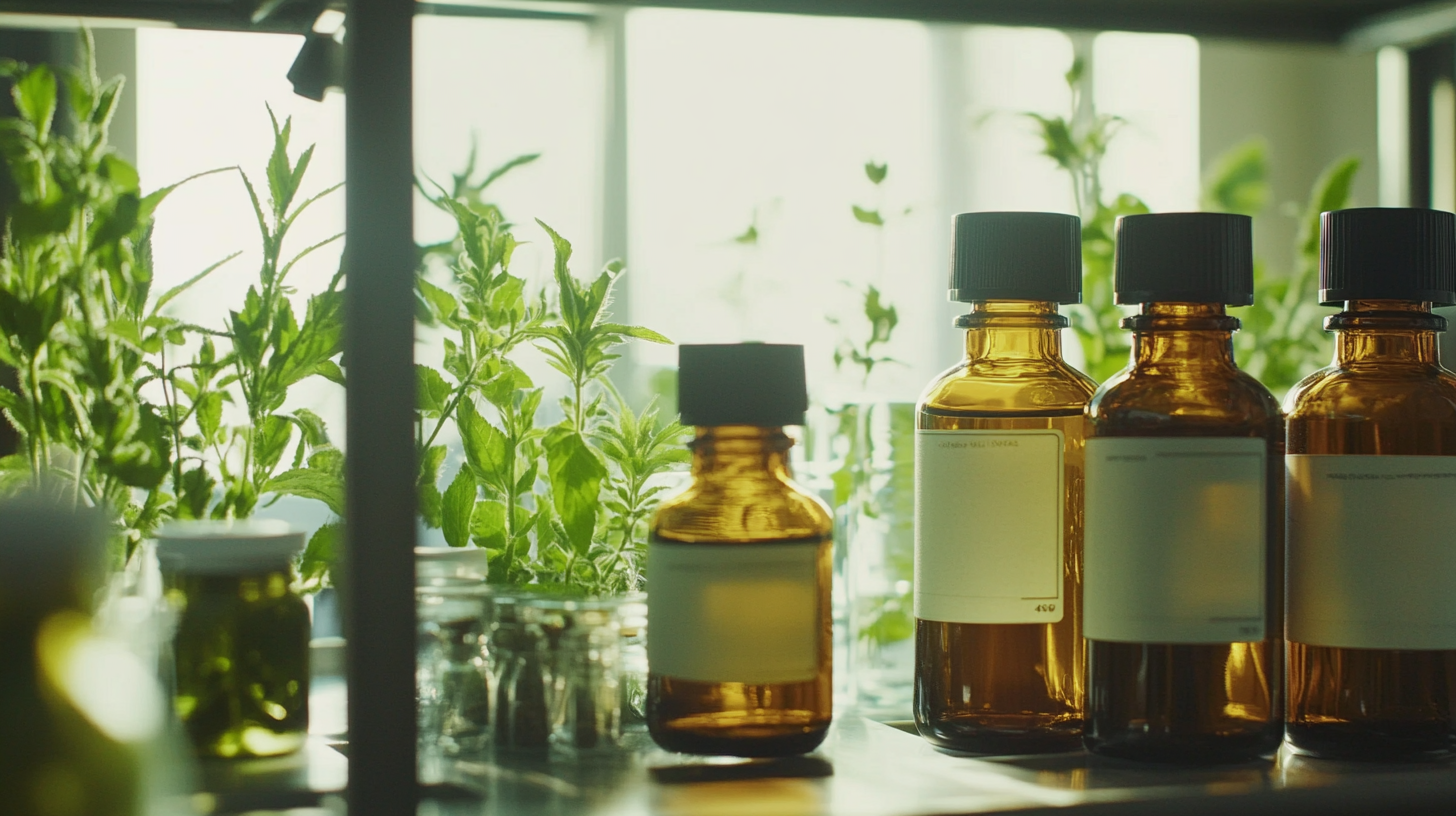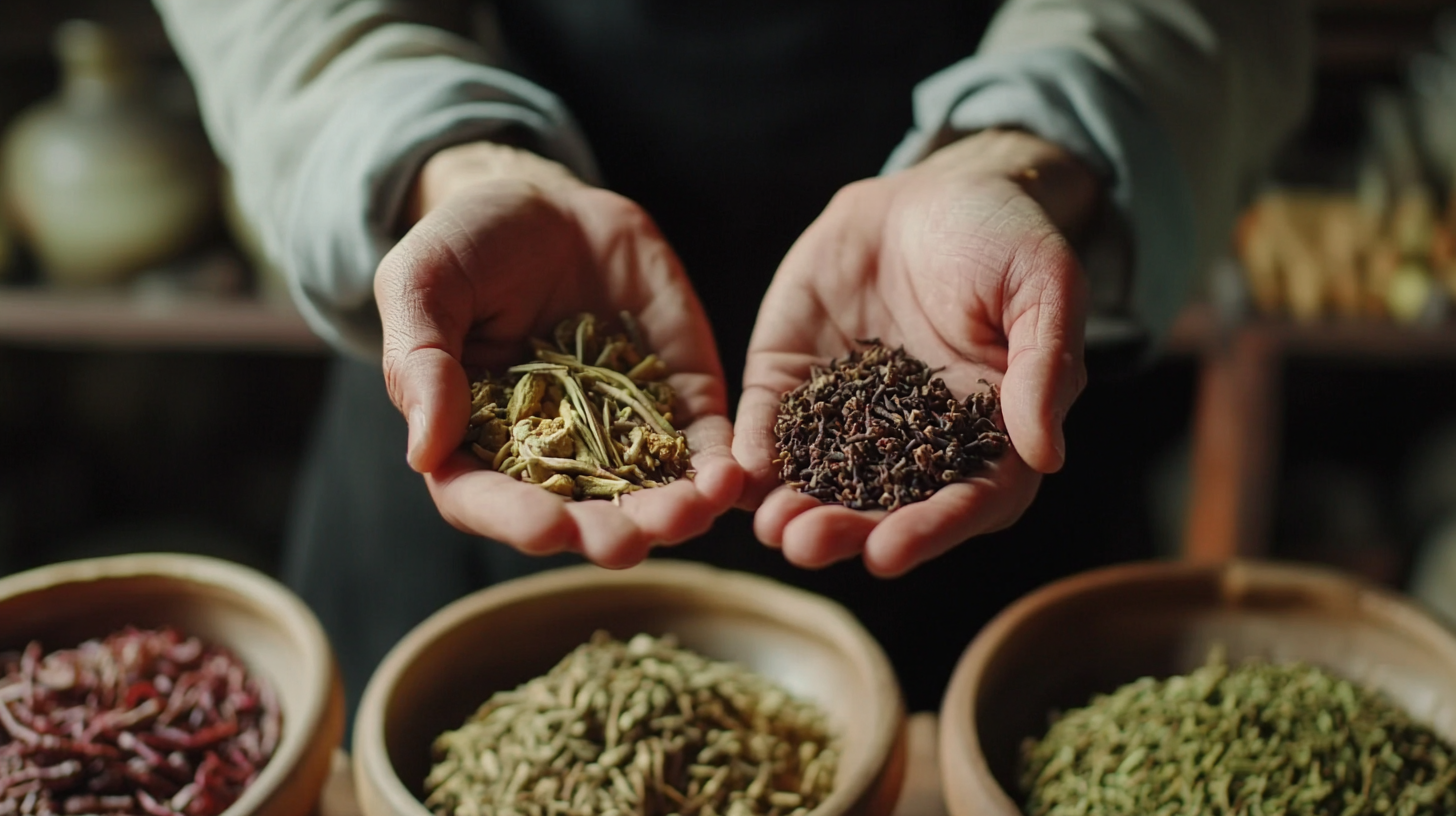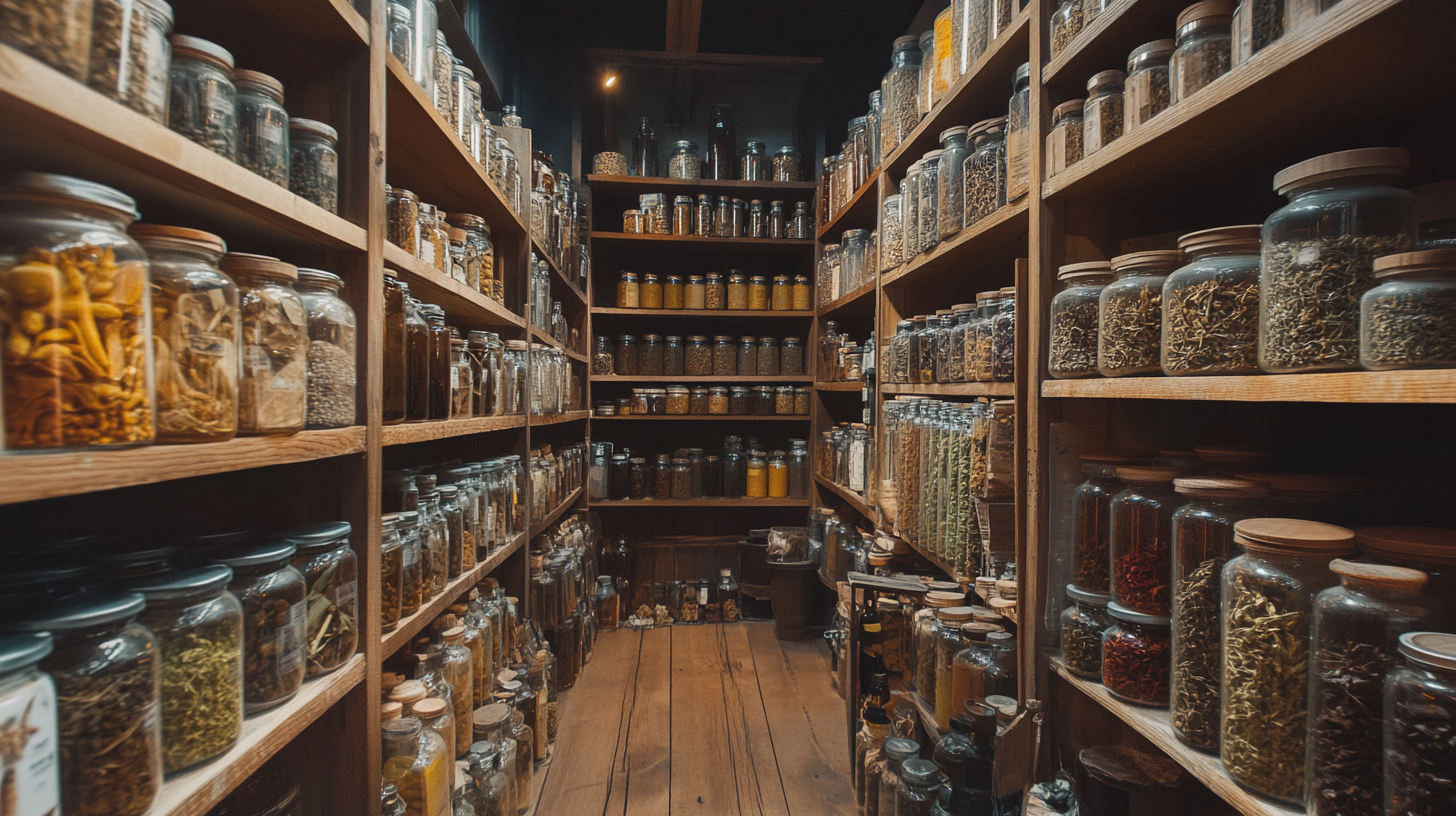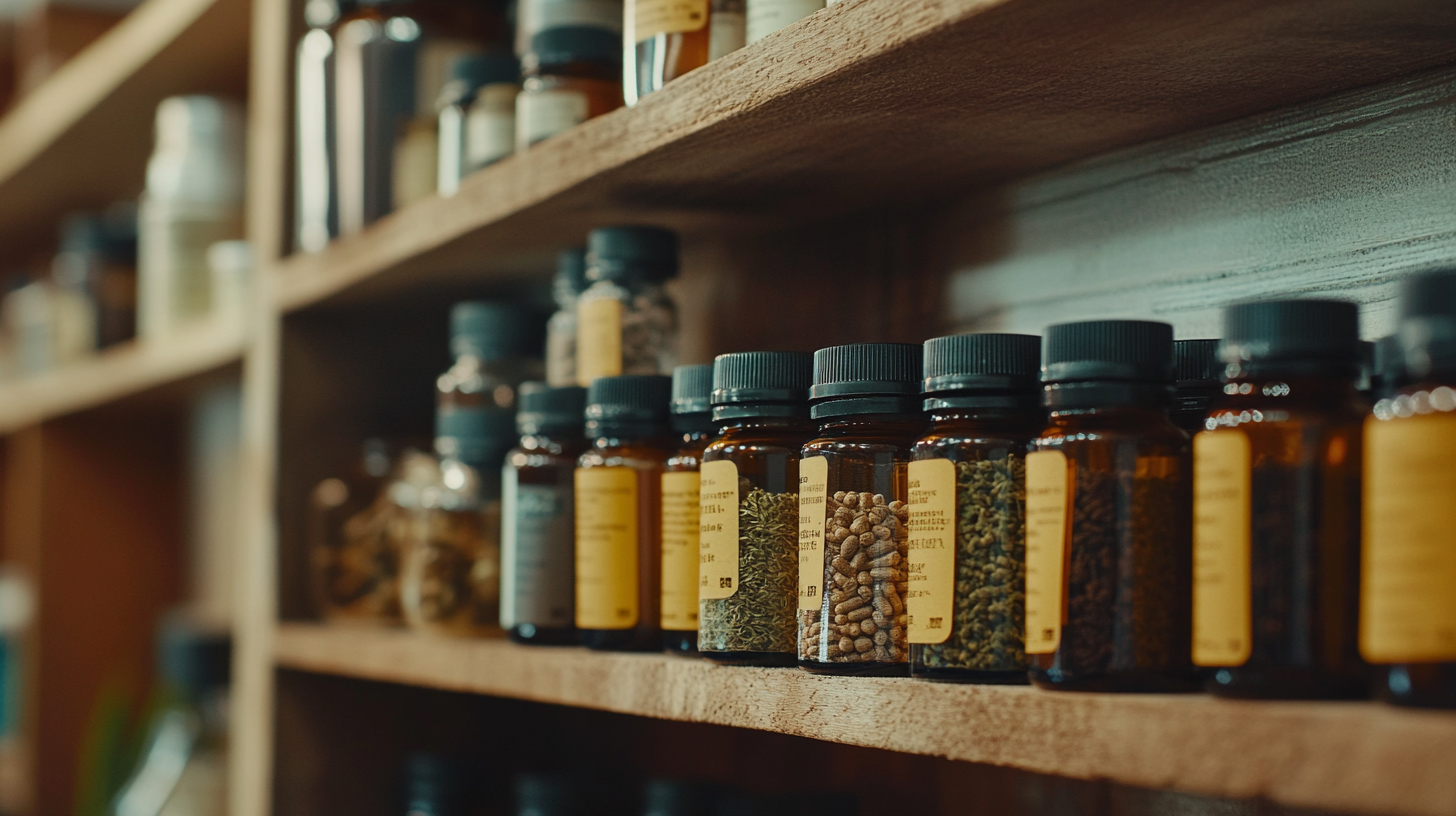50% Response rate
Unlocking the Potential: A Comprehensive Guide to Sourcing Herbal Extracts for Your Business
In today’s competitive market, the demand for high-quality herbal extracts is on the rise, presenting a lucrative opportunity for businesses looking to expand their product offerings. As consumers become increasingly aware of the health benefits associated with natural ingredients, sourcing herbal extracts has emerged as a critical focus for many companies in industries ranging from cosmetics to dietary supplements. This guide aims to unlock the potential of herbal extracts by providing comprehensive insights into the sourcing process, allowing businesses to make informed decisions and secure the best materials for their products.
Navigating the world of herbal extracts can be complex, given the myriad of suppliers and sourcing options available. Understanding the variations in quality, regulatory standards, and supply chain logistics is essential for any business aiming to thrive in this space. This blog will delve into key strategies for sourcing herbal extracts, covering everything from selecting reliable suppliers to ensuring the sustainability of the herbs used. By arming yourself with the right knowledge and tools, you can harness the power of herbal extracts to elevate your product line and enhance your brand’s reputation in an ever-evolving marketplace.

Understanding the Different Types of Herbal Extracts for Business Applications
When it comes to sourcing herbal extracts for business applications, understanding the diverse types of extracts is paramount. The botanical extracts market is bustling with growth, reflecting a growing demand for natural products across various industries, from pharmaceuticals to cosmetics and food and beverage. The key sources of these extracts include spices, herbs, flowers, and leaves, each offering unique benefits and applications. Herbal extracts can be derived using various technologies, with CO2 extraction standing out for its effectiveness in preserving the integrity of the plant's beneficial compounds. This method produces high-quality extracts that are free from solvents, making them particularly appealing for businesses focused on natural formulations. Other extraction methods, such as ethanol and water extraction, offer distinct profiles of potency and flavor, which can influence product development strategies depending on intended use. As consumer preferences shift toward natural and organic ingredients, businesses must evaluate the types of herbal extracts they incorporate. Understanding the characteristics of each source—as well as their extraction methods—enables professionals to make informed decisions tailored to their product goals. The potential applications of these extracts are vast; for instance, herbal oils from flowers can enhance personal care products, while leaf extracts can yield potent supplements. Consequently, businesses that harness the right herbal extracts stand to not only meet consumer demand but also unlock new avenues for innovation.

Key Factors to Consider When Sourcing Herbal Extracts Effectively
When sourcing herbal extracts for your business, several key factors demand careful consideration to ensure both quality and efficacy. One of the foremost aspects is the sourcing of raw materials. For instance, data from the Herbs and Botanicals Market Report by Grand View Research indicates that the global herbal supplements market is projected to reach $49.9 billion by 2027, highlighting the increasing demand for high-quality herbal extracts. Businesses must identify reliable suppliers who prioritize sustainable harvesting practices and have robust quality control measures in place.
Another critical factor is understanding the extraction processes. Different methods, such as solvent extraction, steam distillation, or CO2 extraction, can significantly affect the potency and purity of the herbal extracts. A report by the World Health Organization indicates that contaminants such as heavy metals and pesticides can compromise product safety. Therefore, sourcing extracts that undergo rigorous testing for contaminants and efficacy is paramount.
Additionally, companies should consider regulatory compliance and certifications, such as FDA guidelines or Organic certification. According to a survey by the American Herbal Products Association, nearly 30% of consumers prioritize certifications when selecting herbal products. This trend signals the importance of transparency and trust in sourcing practices. By focusing on these key factors, businesses can effectively navigate the complexities of sourcing herbal extracts and position themselves for success in a competitive market.

Building Strong Relationships with Herbal Extract Suppliers
Building strong relationships with herbal extract suppliers is essential for businesses looking to thrive in the growing herbal market. These relationships go beyond mere transactions; they are partnerships that can significantly impact product quality, availability, and pricing. Cultivating open communication with suppliers is the first step in establishing trust. Regularly discussing expectations, quality standards, and any potential challenges can help both parties align their goals and ensure that the products meet specific requirements.
Another crucial aspect of building these relationships is the need for transparency. Suppliers are more likely to invest in your success if they feel valued and informed. Sharing your business vision and market insights can not only strengthen your bond but also make suppliers more amenable to accommodating your needs, such as custom formulations or priority shipments. Additionally, visiting suppliers and getting to know their operations can deepen mutual respect and understanding, fostering loyalty and cooperation.
Finally, showing appreciation for your suppliers can set you apart from other clients. Simple gestures like timely payments, public acknowledgment of their contribution to your products, or even collaborating on promotional activities can go a long way. By nurturing these relationships, businesses not only secure a reliable source of high-quality herbal extracts but also create a supportive network that can assist in navigating the complexities of the herbal industry.

Navigating Regulatory Compliance for Herbal Extracts in Your Industry
Navigating the regulatory landscape for herbal extracts can be a complex yet critical aspect of sourcing for your business. Different regions have varying regulations that govern the production, import, and sale of these extracts, necessitating a thorough understanding of compliance requirements. Key regulatory bodies such as the FDA in the United States, EFSA in Europe, and TGA in Australia each have distinct guidelines that dictate safety, labeling, and quality standards for herbal products. Businesses must familiarize themselves with these regulations to avoid potential legal pitfalls that could hinder their operations.
Moreover, sourcing high-quality herbal extracts requires due diligence in selecting suppliers who adhere to these regulations. It is essential to conduct rigorous assessments, including verifying certifications, checking for Good Manufacturing Practices (GMP) compliance, and requesting third-party testing results. This ensures that the extracts meet not only regulatory standards but also the quality expectations of your customers. Engaging with industry associations or consulting with regulatory experts can provide valuable insights and resources to help navigate these complexities effectively.
In addition to compliance, transparent labeling is crucial in building consumer trust and ensuring market success. Regulations often require specific information on product labels, including the botanical name, extraction method, and any potential allergens. By ensuring that your herbal extracts are not only compliant but also transparently labeled, you create a reliable product that resonates with health-conscious consumers, thus improving your brand's reputation in a competitive market.
Sustainable Sourcing Practices for Quality Herbal Extracts
In the competitive landscape of the herbal extract market, sustainable sourcing practices have emerged as a critical component for businesses aiming to ensure quality and integrity in their products. According to a report by Grand View Research, the global herbal extract market was valued at approximately $23 billion in 2022, with expectations to grow at a CAGR of 8.4% from 2023 to 2030. This growth highlights the increasing consumer demand for natural products, making sustainable sourcing not just an ethical choice, but a strategic business imperative.
One key aspect of sustainable sourcing is the reliance on eco-friendly farming practices that minimize environmental impact. The World Health Organization emphasizes that proper cultivation and harvesting methods not only preserve biodiversity but also enhance the efficacy of herbal extracts. For instance, sourcing from certified organic farms can lead to higher concentrations of active ingredients, resulting in superior products. A study published in the Journal of Agricultural and Food Chemistry found that organic herbal extracts contained up to 20% more phytochemicals than their conventionally farmed counterparts.
Additionally, transparency in supply chains is gaining traction as consumers become more informed and concerned about the origins of their products. The sustainability report by the herbal industry association noted that 70% of consumers are willing to pay a premium for products sourced ethically. Businesses that adopt transparent practices, such as fair trade certifications or direct farmer partnerships, not only enhance their brand reputation but also contribute to the welfare of the communities involved in the production process. Embracing these sustainable sourcing practices ultimately empowers businesses to unlock the full potential of herbal extracts while fostering environmental and social sustainability.
